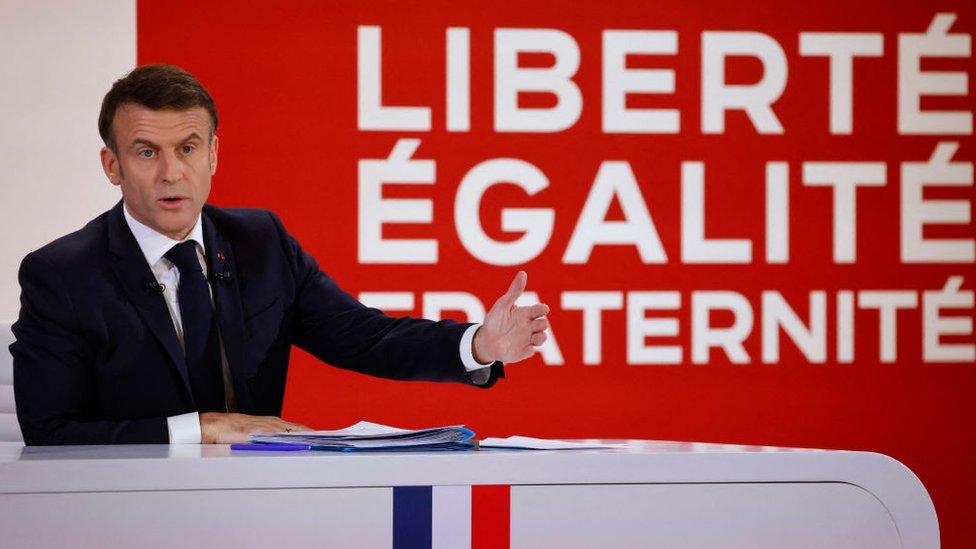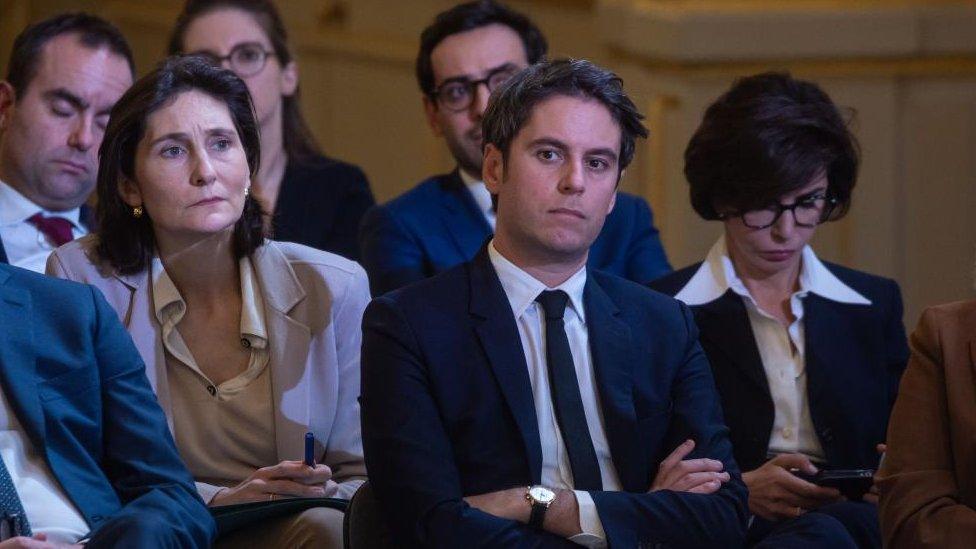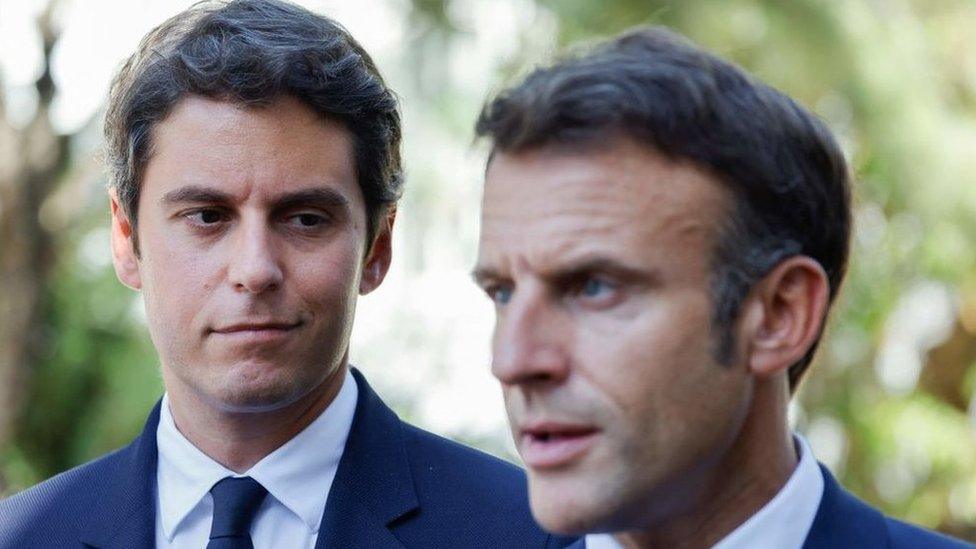France's Macron shifts to right on schools and birth rate
- Published

The president began with a 30-minute opening address followed by two hours of questions
French President Emmanuel Macron has come off the fence and opened the way for policies that are unmistakably on the political right.
That is the unanimous verdict after he gave a long, televised press conference on Tuesday evening.
He promoted uniforms in schools, a crackdown on drugs gangs, and steps to boost France's declining birth rate.
Left-wing commentators deplored his apparent shift from the crafted political balance of recent years.
But they said they suspected all along the right was where his heart lay.
Commentators on the right said they were delighted by his apparent conversion to their views, but suspected it was all a sham.
Macron appeared for two and a half hours before around 100 journalists assembled in the Salle des Fêtes of the Elysée palace.
It was billed as a chance to "meet the nation" and set the themes for his last three years in office, after accusations that he had lost his reforming touch after re-election in 2022.
It also came one week after President Macron's appointment of a new government under Gabriel Attal, the youngest prime minister in French history. Mr Attal leads a cabinet whose make-up is noticeably more right-wing than its predecessors.
Read more from Hugh: Macron picks Attal, 34, as France's youngest PM
The president's language certainly suggested that he had recalibrated his programme to counter the growing challenge from the hard-right nationalists of Marine Le Pen. Her National Rally (RN) party is tipped to come first in European elections in June.
Developing his idea of "civic rearmament", he said the inculcation of French Republican values in schoolchildren was the key to "France remaining France".
"Every generation must learn what the Republic means - a history, duties, rights, a language, respect… and they must learn it from childhood," he said.
He said that the wearing of school uniform - an idea supported until now only by part of the political right - would become general in 2026 if an experiment in 100 schools next year was judged successful.
He supported the learning of the national anthem in schools, ceremonies for delivering school diplomas, and a compulsory period of civic service for 16-year-olds. Without going into detail, he also promised measures to control the amount of time children spend on screens.
But the president's most overt lift from the conservative playbook was a promise of more "natalist" policies to counter France's falling birth rate. In 2023 fewer than 700,000 babies were born for the first time since World War Two.

President Macron has appointed a new government under Prime Minister Gabriel Attal (C) and with a new education minister Amélie Oudéa-Castéra (L)
Such policies are often reported in the French press as being the preserve of "reactionary" governments like Prime Minister Viktor Orban's in Hungary. But Mr Macron said he wanted to boost access to fertility treatments, and create a new and more generous system of parental leave.
Together with promises to continue the fight against illegal immigration and crack down on drugs gangs, the address, for the left-wing Libération newspaper, spelled out an "outdated not to say conservative vision" of France.
Le Monde said the president was "flirting with nostalgia for a France of old".
For the conservative Le Figaro, however, "the president broke openly with the perpetual oscillation that has characterised his policy. Never has he come so close to the expectations of the public - and for that we must be happy".
The president chose a formula that included a 30-minute opening address followed by two hours of questions and answers with journalists.
The exhaustive format played to President Macron's strengths: his mastery of detail and obvious delight in dilating on every conceivable subject. The risk - which he arguably failed to avoid - was of coming across as intellectually vain, hiding a lack of substance behind torrents of words.
Marine Le Pen said the press conference was "yet another interminable jabber".
Related topics
- Published9 January 2024
